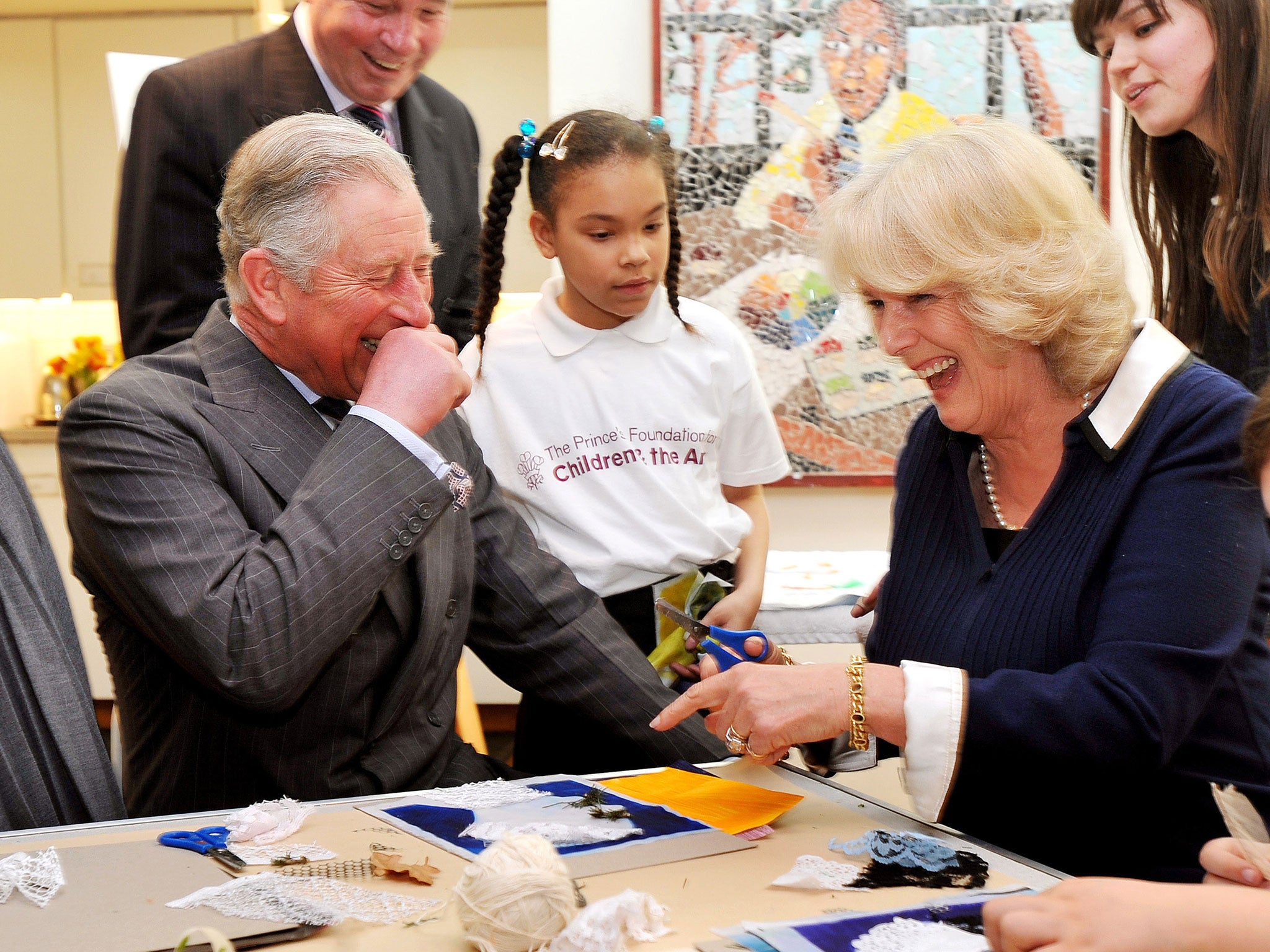Charities fear funding crisis after accession of Charles to throne
Convention would prevent Prince from raising money for his charitable interests

Your support helps us to tell the story
From reproductive rights to climate change to Big Tech, The Independent is on the ground when the story is developing. Whether it's investigating the financials of Elon Musk's pro-Trump PAC or producing our latest documentary, 'The A Word', which shines a light on the American women fighting for reproductive rights, we know how important it is to parse out the facts from the messaging.
At such a critical moment in US history, we need reporters on the ground. Your donation allows us to keep sending journalists to speak to both sides of the story.
The Independent is trusted by Americans across the entire political spectrum. And unlike many other quality news outlets, we choose not to lock Americans out of our reporting and analysis with paywalls. We believe quality journalism should be available to everyone, paid for by those who can afford it.
Your support makes all the difference.More than a dozen charities supported by the Prince of Wales have been warned they could face a funding crisis when he accedes to the throne.
During his time as heir, Prince Charles has built up and supported a series of charities that promote his interests and that rely on his patronage for their income. But convention dictates that the monarch does not actively raise money on behalf of any individual institution – no matter how worthy the cause.
As a result The Independent understands that representatives of a number of the charities have contacted Clarence House to express concerns that their livelihoods could be in jeopardy if they can no longer use his name or count on his attendance at fundraising events.
The Prince’s charitable interests, which range from running a drawing school in east London to improving the sustainability of British farming and tackling youth unemployment, require extensive annual funding.
Accounts filed by 13 of the charities set up in the Prince of Wales’ name show total income of £103m in 2012.
Prince Charles serves as president and regularly attends gala dinners to raise funds, appeal for donations and reward existing supporters. These events, such as a Shakespeare-themed evening at Buckingham Palace in February for his educational charity Children & the Arts, are particularly important for some of the smaller enterprises. When the Prince failed to hold such an event in 2012, the charity warned in its accounts that donations for the year would “fall significantly as a result of not having a high-profile Palace Gala event”.
Another annual event, the Invest in Futures dinner for The Prince’s Trust, raised £1.2m this year, and the Prince used his speech to make a direct appeal to the audience of wealthy financiers to give money.
On occasion, the Prince’s involvement in funding deals has attracted criticism. Earlier this year The Independent reported that The Prince’s Foundation for Building Community signed a £700,000 agreement with the Bahraini government to advise on a sustainable-housing development. The deal came a week after the Prince hosted Bahrain’s Housing Minister at Clarence House.
But when he eventually takes on the duties of monarch, Prince Charles will be unable to take such an active role and will also lose the Duchy of Cornwall lands which currently provide some funding for his charities.
Dr Bob Morris, of University College London’s Constitution Unit, said: “Whereas it might be acceptable for the Prince of Wales to be seen drumming up the cash, as it were, that’s not something one would expect of the head of state.”
While there was no restriction in law, he said it was a “question of what is appropriate conduct”.
Noel Cox, professor of law at Aberystwyth University and an expert in constitutional law, said: “Prince Charles will not be able to hold executive positions in any of his charities once he is sovereign and in any case he would not have the time as king to devote significant time to them.”
Senior staff and trustees at a number of the Prince’s charities admitted they were unsure what would happen to the organisations once he becomes king. Richard Martin, the chairman of the Prince’s Initiative for Mature Enterprise, said: “I don’t know what will happen. We obviously plan for all kinds of contingencies, but to be honest, like any other organisation we have to deal with them as and when they arise.”
A spokeswoman for Clarence House said: “The Prince’s charities are independent charities and so will make their own decisions about what will happen in this eventuality.”
Subscribe to Independent Premium to bookmark this article
Want to bookmark your favourite articles and stories to read or reference later? Start your Independent Premium subscription today.
Join our commenting forum
Join thought-provoking conversations, follow other Independent readers and see their replies
Comments